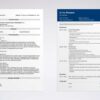What qualifications are needed for high-paying work-from-home jobs?

work from home jobs

Are you tired of the daily commute and dreaming of a high-paying job you can do from the comfort of your own home? You’re not alone. The rise of remote work has opened up a world of opportunities, but landing those coveted high-paying positions requires more than just a desire to work in your pajamas. 🏠💼
So, what does it take to secure a lucrative work-from-home job? The answer lies in a combination of education, technical prowess, and soft skills that make you stand out in the digital workforce. Whether you’re a seasoned professional looking to transition to remote work or a newcomer eager to start your career from home, understanding the qualifications needed is your first step towards success.
In this blog post, we’ll dive into the essential qualifications for high-paying remote jobs. From the educational backgrounds that employers value to the technical skills that are in high demand, we’ll cover everything you need to know. We’ll also explore the soft skills that are crucial for remote success, industry-specific qualifications that can give you an edge, and how to build the experience and portfolio that will make recruiters take notice. Get ready to transform your work-from-home aspirations into a well-paying reality!

Educational Requirements for High-Paying Remote Jobs
Bachelor’s Degree: The Foundation
A bachelor’s degree is often the minimum educational requirement for high-paying remote jobs. This foundational qualification opens doors to various lucrative work-from-home opportunities across industries. Here’s a breakdown of popular remote-friendly fields and their typical degree requirements:
| Field | Common Degree Types |
|---|---|
| Technology | Computer Science, Information Technology, Software Engineering |
| Business | Business Administration, Finance, Marketing |
| Healthcare | Nursing, Health Informatics, Public Health |
| Education | Education, Instructional Design, Curriculum Development |
Master’s Degree: Advancing Your Prospects
For those seeking top-tier remote positions, a master’s degree can significantly boost earning potential and job prospects. Advanced degrees are particularly valuable in:
- Data Science and Analytics
- Business Administration (MBA)
- Cybersecurity
- Project Management
Professional Certifications: Industry-Specific Credentials
In addition to formal degrees, professional certifications can enhance your qualifications for high-paying remote jobs. Some in-demand certifications include:
- PMP (Project Management Professional)
- AWS Certified Solutions Architect
- Certified Information Systems Security Professional (CISSP)
- Google Analytics Individual Qualification

Continuous Learning: Staying Competitive
The remote job landscape is ever-evolving, making continuous learning crucial for maintaining a competitive edge. To stay relevant:
- Enroll in online courses from platforms like Coursera or edX
- Attend virtual conferences and webinars
- Participate in industry-specific forums and discussions
- Keep up with the latest trends and technologies in your field
With these educational qualifications and a commitment to ongoing learning, you’ll be well-positioned for high-paying work-from-home opportunities. Next, we’ll explore the technical skills that can further enhance your remote job prospects.

Technical Skills for Lucrative Work-from-Home Positions
Programming Languages: In-Demand Coding Expertise
In the realm of high-paying remote jobs, programming skills are invaluable. Here’s a list of the most sought-after programming languages:
- Python
- JavaScript
- Java
- C++
- Ruby
Proficiency in these languages can open doors to lucrative positions such as software developer, full-stack engineer, or data scientist.
Data Analysis and Visualization
Data-driven decision-making is crucial for businesses, making data analysis skills highly prized. Key tools include:
| Tool | Primary Use |
|---|---|
| SQL | Database querying |
| R | Statistical analysis |
| Tableau | Data visualization |
| Power BI | Business intelligence |

Mastering these tools can lead to roles like data analyst or business intelligence specialist.
Digital Marketing and SEO Proficiency
Digital marketing expertise is essential for remote positions in marketing and content creation. Important skills include:
- Search Engine Optimization (SEO)
- Social media marketing
- Content marketing
- Email marketing
- Pay-per-click (PPC) advertising

Project Management Tools and Methodologies
Effective project management is crucial for remote work. Familiarize yourself with:
- Agile methodologies
- Scrum framework
- Kanban boards
- Project management software (e.g., Jira, Trello, Asana)
These skills are valuable for project manager roles and team leadership positions.
Cloud Computing and Cybersecurity Knowledge
As businesses increasingly rely on cloud services, skills in this area are highly sought after. Key areas include:
- AWS, Azure, or Google Cloud Platform
- Virtualization technologies
- Network security
- Encryption methods
- Threat detection and prevention
With the rise of remote work, cybersecurity expertise has become even more critical, opening up opportunities for well-paying positions in IT security.
Now that we’ve covered the technical skills, let’s explore the soft skills that are equally important for success in remote work environments.
Soft Skills Essential for Remote Success
Self-Motivation and Time Management
Self-motivation and time management are crucial soft skills for success in remote work environments. Without direct supervision, remote workers must be able to:
- Set goals and priorities
- Create and stick to schedules
- Manage deadlines effectively
- Stay focused and productive
Here’s a comparison of effective vs. ineffective time management strategies:
| Effective Strategies | Ineffective Strategies |
|---|---|
| Using time-blocking techniques | Multitasking excessively |
| Setting SMART goals | Working without clear objectives |
| Taking regular breaks | Working long hours without rest |
| Minimizing distractions | Allowing constant interruptions |
Effective Communication in Virtual Settings
Clear and concise communication is essential in remote work. Key aspects include:
- Writing clear emails and messages
- Active listening during video calls
- Proper use of collaboration tools
- Timely responses to colleagues
Adaptability and Problem-Solving
Remote workers often face unique challenges that require adaptability and strong problem-solving skills. This involves:
- Quickly learning new technologies
- Finding creative solutions to technical issues
- Adjusting work styles to meet changing project needs
- Overcoming communication barriers in virtual teams
Collaboration and Teamwork in Digital Environments
Effective collaboration in digital spaces is crucial for remote success. This includes:
- Participating actively in virtual meetings
- Sharing ideas and feedback constructively
- Using project management tools efficiently
- Building rapport with team members virtually
Remote workers who excel in these soft skills are more likely to thrive in high-paying work-from-home positions. As we explore industry-specific qualifications next, keep in mind that these soft skills are universally valuable across various sectors.
Industry-Specific Qualifications
A. Healthcare: Telemedicine and Health Informatics
In the rapidly evolving healthcare industry, telemedicine and health informatics offer lucrative work-from-home opportunities. For telemedicine roles, professionals typically need:
- Medical degree (MD or DO)
- State medical license
- Board certification in a specialty
- Telemedicine training certification
Health informatics positions often require:
- Bachelor’s or Master’s degree in Health Informatics or related field
- Certifications like RHIA (Registered Health Information Administrator)
- Knowledge of healthcare data systems and analytics
| Telemedicine | Health Informatics |
|---|---|
| Medical degree | Bachelor’s/Master’s in Health Informatics |
| State license | RHIA certification |
| Specialty certification | Data analytics skills |
| Telemedicine training | Healthcare IT experience |
B. Finance: Accounting and Financial Analysis
Remote finance jobs demand specific qualifications:
- Bachelor’s degree in Finance, Accounting, or Economics
- Professional certifications:
- CPA (Certified Public Accountant)
- CFA (Chartered Financial Analyst)
- CFP (Certified Financial Planner)
- Proficiency in financial software (e.g., QuickBooks, SAP)
- Knowledge of tax laws and regulations
C. IT: Software Development and Network Administration
The IT sector offers numerous high-paying remote positions. Key qualifications include:
- Software Development:
- Bachelor’s in Computer Science or related field
- Proficiency in programming languages (e.g., Java, Python, C++)
- Experience with version control systems (e.g., Git)
- Knowledge of software development methodologies
- Network Administration:
- Bachelor’s in IT or Computer Science
- Certifications like CCNA (Cisco Certified Network Associate)
- Experience with network protocols and security
D. Education: Online Teaching and Curriculum Design
The education sector has seen a surge in remote opportunities. Qualifications needed:
- Master’s or Ph.D. in the subject area
- Teaching certification (for K-12 roles)
- Experience with online learning platforms (e.g., Blackboard, Canvas)
- Curriculum development skills
- Familiarity with educational technology tools
As we explore these industry-specific qualifications, it’s clear that each field demands a unique set of skills and certifications. Next, we’ll delve into the importance of experience and portfolio building in securing high-paying remote positions.
Experience and Portfolio Building
Internships and Entry-Level Remote Positions
Gaining experience through internships and entry-level remote positions is crucial for building a successful work-from-home career. These opportunities allow you to:
- Develop practical skills in a remote work environment
- Understand the dynamics of virtual collaboration
- Build a professional network in your chosen field
Many companies now offer remote internships, providing a valuable stepping stone for those seeking high-paying work-from-home jobs.
| Benefit | Description |
|---|---|
| Skill Development | Hands-on experience with industry-specific tools and practices |
| Network Building | Connections with professionals in your field |
| Resume Enhancement | Tangible experience to showcase to future employers |
Freelancing and Contract Work
Freelancing and contract work offer excellent opportunities to gain diverse experience and build a robust portfolio. This path allows you to:
- Work on various projects across different industries
- Develop a wide range of skills
- Showcase your ability to manage time and deliver results independently
Personal Projects and Open-Source Contributions
Engaging in personal projects and contributing to open-source initiatives can significantly enhance your qualifications for high-paying remote positions. These activities demonstrate:
- Initiative and self-motivation
- Practical application of skills
- Ability to work collaboratively in a distributed environment
Building an Online Presence and Professional Network
Establishing a strong online presence is essential in today’s digital job market. Key strategies include:
- Creating a professional website or portfolio
- Actively participating in industry-specific online forums and communities
- Leveraging social media platforms like LinkedIn to showcase expertise and connect with potential employers
By consistently engaging in these activities, you’ll not only gain valuable experience but also increase your visibility to potential remote employers, setting the stage for lucrative work-from-home opportunities.

High-paying work-from-home jobs demand a combination of educational qualifications, technical prowess, and essential soft skills. While many remote positions require specific degrees or certifications, others value practical experience and a strong portfolio. Technical skills, particularly in IT, programming, and digital marketing, are highly sought after in the remote work landscape. Equally important are soft skills like communication, time management, and self-motivation, which are crucial for succeeding in a virtual environment.
To position yourself for lucrative remote opportunities, focus on developing a well-rounded skill set that aligns with your chosen industry. Continuously update your knowledge, build a strong online presence, and showcase your expertise through a professional portfolio. By investing in your qualifications and adapting to the evolving remote work ecosystem, you can unlock the door to high-paying work-from-home careers that offer both financial rewards and lifestyle flexibility.

